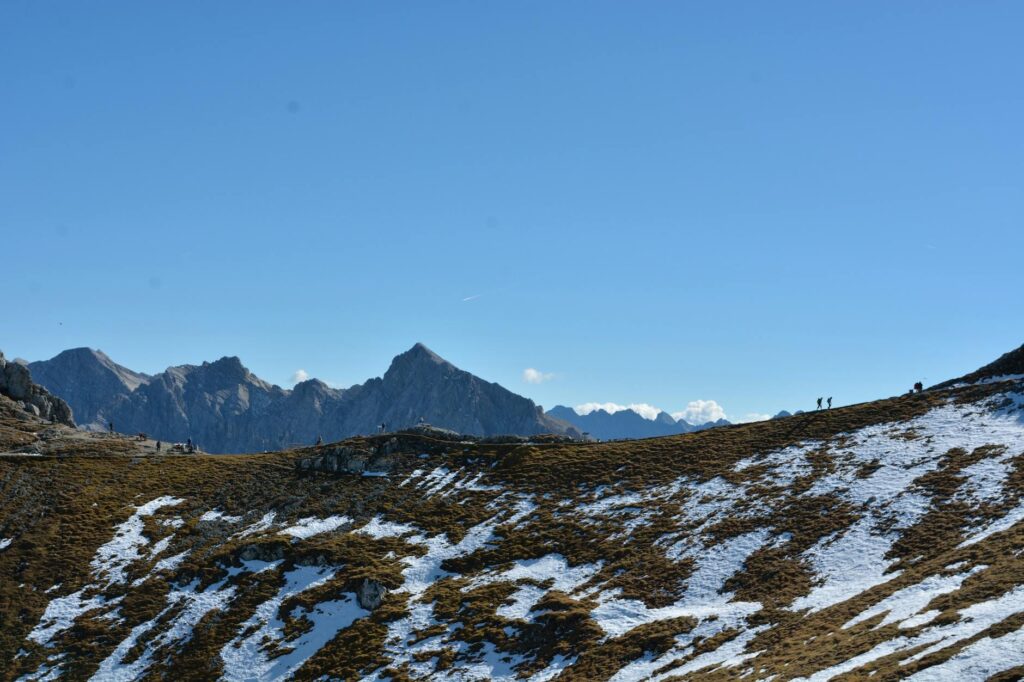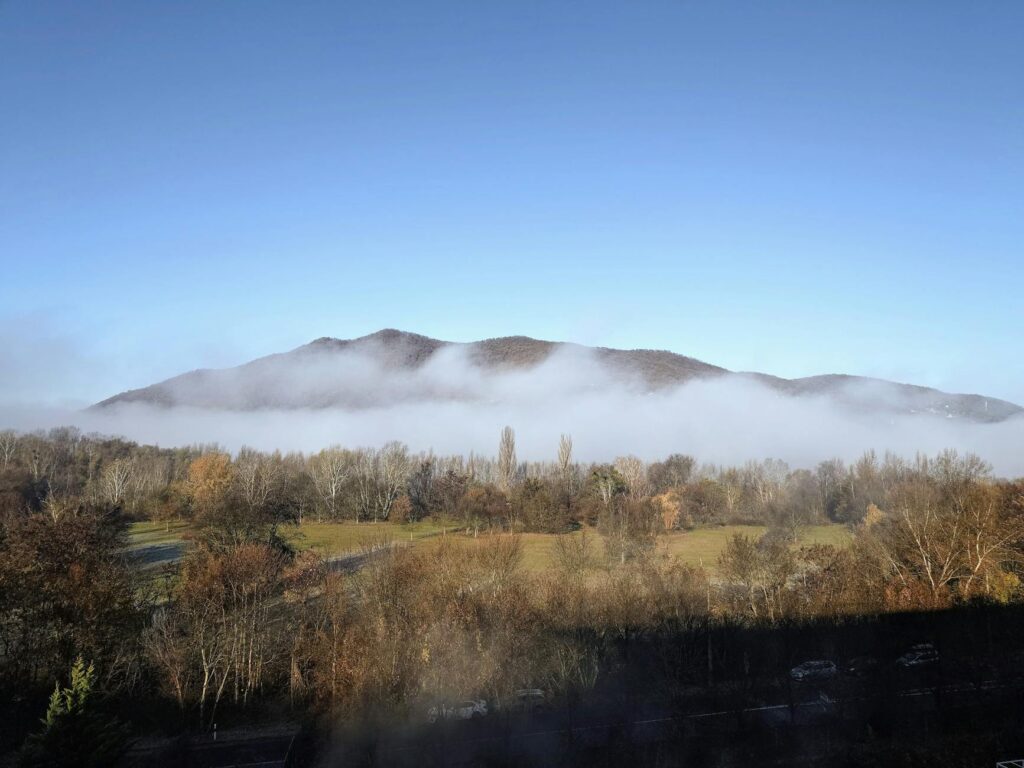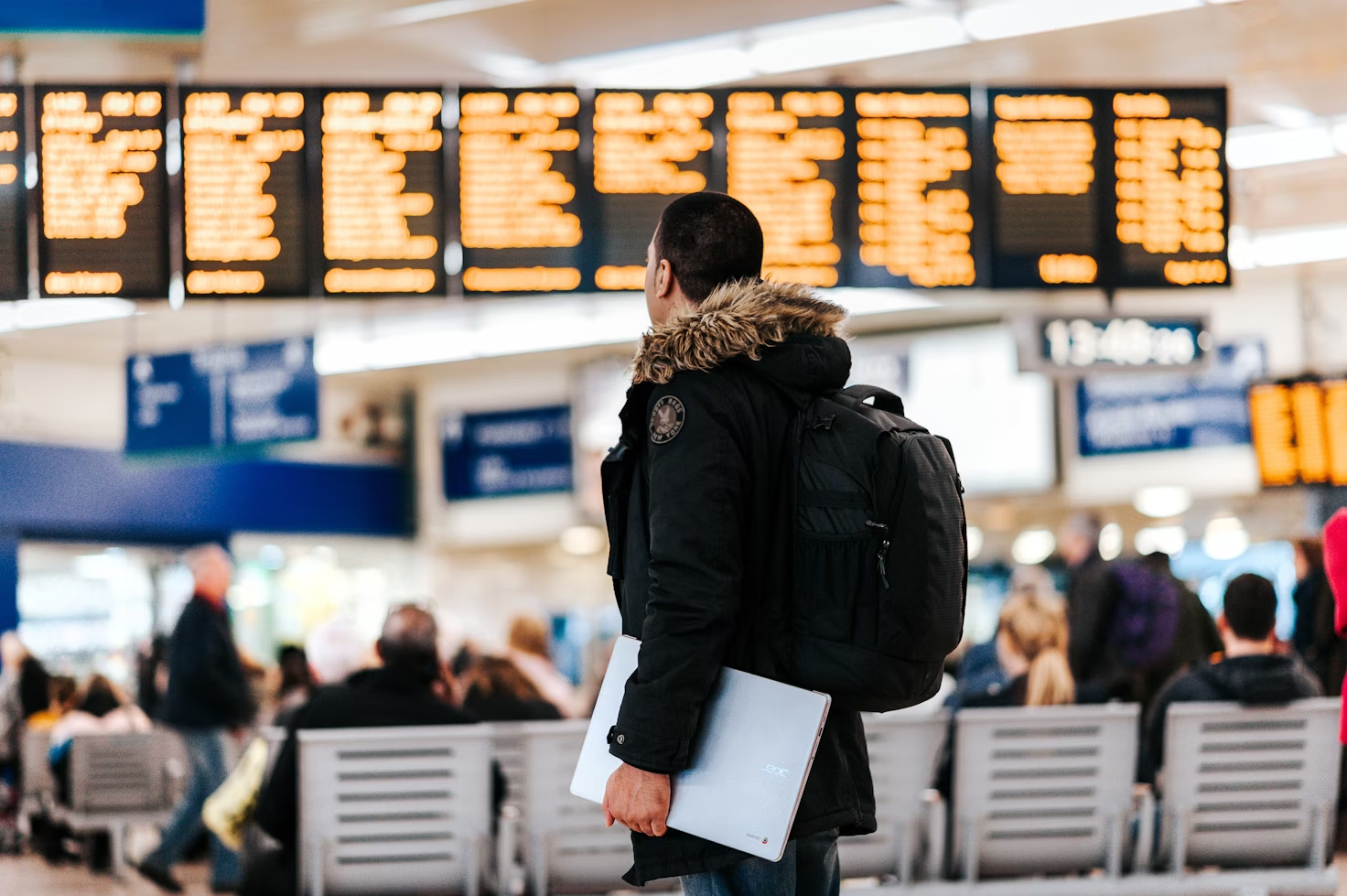Traveling during the off-season is gaining traction among adventurers and backpackers. But is it really worth it? Off-season trips can bring unique advantages, like fewer crowds and lower prices. However, there are some downsides to think about as well.
- Off-season travel can save you money on flights and hotels.
- Fewer crowds mean a more relaxed experience.
- Weather might be unpredictable, so plan accordingly.
- Some attractions may have limited hours or be closed.
- Traveling during off-peak times can offer unique local experiences.
Whether you’re a solo traveler or part of a group, understanding the trade-offs will help you make an informed decision. Get ready to see if venturing out when everyone else stays home suits your travel style.
Understanding Off-Season Travel

Off-season travel offers a unique perspective on popular destinations. It’s important to recognize that what constitutes “off-season” can differ significantly depending on where you’re heading. Understanding these nuances can help you make smarter travel decisions.
What Constitutes Off-Season?
The timing of the off-season varies from one destination to another. For instance, tropical locations may see an off-season during the rainy months, while ski resorts often experience their slow season when the snow melts. Factors that influence off-season periods include:
- Geographical Location: Hot places may be less popular in the summer, while cooler regions may hit peak travel in warmer months.
- Local Events: Festivals, holidays, or school vacations can spike demand, meaning the off-season aligns with the absence of such events.
- Weather Conditions: Areas known for harsh climates could deter visitors in extreme heat or cold, marking specific periods as off-season.
Travelers can identify these times by researching local tourism calendars, consulting travel guides, or using social media to see when others mention their visits. Knowing the off-season allows you to maximize savings and enjoyment on your trip.
Reasons to Consider Off-Season Travel
Choosing to travel during the off-season has its perks. Here are some compelling reasons to consider this option:
- Fewer Crowds: Enjoy attractions without the hustle and bustle. It’s easier to take in breathtaking views when you’re not jostling for space.
- Lower Costs: Airfare and accommodation rates often plummet during these quieter times. You can enjoy the same luxurious feel at a fraction of the price.
- More Personalized Experience: With fewer tourists, you can receive more attention from service staff, whether it’s in restaurants or at hotels. This often leads to a more personalized and meaningful experience.
- Unique Local Culture: Off-season travel often grants travelers a chance to see a destination in its authentic routine. You might stumble upon local happenings that peak tourist times miss.
- Flexibility: With fewer travelers around, you are less likely to encounter sold-out tours or booked hotels. This gives you the freedom to change plans on a whim.
Exploring these advantages can significantly enrich your travel experience. Are you tempted to step off the beaten path during the quieter months? Embracing the off-season might be just the adventure you need.
Pros of Off-Season Travel

Traveling during the off-season can transform your travel experience in ways you might not expect. While some people shy away from trips when peak season winds down, choosing to explore when fewer tourists are around can offer remarkable benefits. Here are some key pros of off-season travel:
Cost-Effective Travel Options
One of the most significant advantages of off-season travel is the price drop for flights, accommodations, and activities. Major airlines, hotels, and tour providers often lower their rates to entice travelers during these quieter periods. When you book off-season, you can expect:
- Lower Airfare: Flight prices can decrease significantly, meaning you might snag that dream destination for less.
- Affordable Lodging: Hotels and vacation rentals frequently offer attractive discounts to fill their rooms.
- Budget-Friendly Activities: Popular attractions may reduce ticket prices or host special deals to encourage visitors.
Think about it: why pay full price for an experience that you can enjoy for much less? With the money saved, you can stretch your budget for souvenirs, dining, or even an extra excursion.
Reduced Crowds and Enhanced Experiences
Who doesn’t want to enjoy beautiful views without the hassle of large crowds? Off-season travel means fewer tourists jamming popular sites, leading to a more peaceful and immersive experience. Benefits include:
- Less Waiting: You can skip the long lines at attractions, making your experience more enjoyable.
- Personal Connections: With fewer people around, you have a better chance to engage with locals, enhancing your understanding of their culture.
- Enhanced Sightseeing: Take in the serene atmosphere while exploring parks, museums, or historical sites. You can appreciate the beauty around you without being overwhelmed.
Imagine wandering through an ancient city, soaking in the history without battling against shoulder-to-shoulder crowds. It’s truly a different level of exploration!
Unique Seasonal Experiences
Every season brings its own charm, especially during the off-peak times. By visiting your destination during its off-season, you might discover:
- Special Events: Local festivals, markets, or cultural events often occur when the crowds thin out. These unique experiences may not be highlighted during peak tourist seasons.
- Breathtaking Natural Scenery: Places like national parks can offer stunning seasonal changes, from vibrant fall foliage to blossoming spring flowers. Off-season travelers can witness nature’s beauty in a quieter, more profound way.
- Authentic Lifestyle: With fewer tourists around, you can dive deeper into local customs and traditions, experiencing a side of the culture that most tourists miss.
Embracing the uniqueness of off-season travel can add unforgettable memories to your journey. For example,visiting Greece in the off-season offers serene landscapes, budget-friendly options, and an authentic cultural experience.
Cons of Off-Season Travel

While off-season travel offers unique advantages, it’s essential to recognize the potential downsides. Here are some key cons to consider before booking that quiet getaway.
Unpredictable Weather Conditions
Weather can be a double-edged sword during off-season travel. Many destinations experience extreme fluctuations or unpredictable conditions. For instance, tropical areas may face unexpected rain showers or storms, while mountainous regions could have sudden snow. This variability can impact your planned activities significantly.
- Limited Sightseeing Opportunities: Bad weather can lead to closed attractions or limited outdoor activities, which may force you to alter your itinerary.
- Comfort Concerns: Wet conditions or drastic temperature changes can affect your comfort level and overall enjoyment of the trip. No one wants to be hiking in the rain or freezing during a winter retreat!
Traveling off-season means staying alert to weather forecasts and having backup plans ready. Are you willing to gamble with the climate for quieter roads?
Limited Availability of Services and Attractions
Another significant factor is the availability of services and attractions. Many businesses, especially in tourist-heavy locations, adjust their hours or close completely during off-peak times. This can mean fewer dining options, restricted attraction hours, or even closed businesses.
- Reduced Restaurant Choices: Popular dining spots may close for renovations or simply due to slow business.
- Closed Attractions: Museums, parks, and tours may operate on limited schedules, which could be frustrating if you are eager to experience everything the destination has to offer.
To avoid disappointment, it’s critical to research the places you want to visit. Can your trip still be enjoyable if your must-see spots are shuttered?
Potential Travel Disruptions
Off-season travel can also come with transportation challenges. While the roads may be less crowded, this doesn’t guarantee seamless travel. You may encounter unexpected delays or disruptions.
- Flight and Train Delays: Airlines and train services often cut back on routes during the off-season, increasing the likelihood of scheduling changes or cancellations.
- Bumpy Local Transport: Some local transport options may reduce their services, making it harder to get from one point to another.
Before you set off, ensure you’re aware of possible travel disruptions. Consider whether you have the flexibility to adjust your plans if the unexpected occurs. Are you prepared to manage the hiccups that can accompany off-season travel?
Maximizing Your Off-Season Experience

To truly capitalize on the benefits of off-season travel, careful preparation is essential. By investing time in research and planning, you can ensure that your trip is seamless and enjoyable, regardless of the time of year. Here are some strategic approaches to make the most of your off-season adventure.
Research and Planning Strategies
Before you set off, conduct thorough research to prepare for potential challenges. Weather conditions can vary significantly in the off-season, so here are a few tips to keep in mind:
- Check Climate Forecasts: Look up historical weather trends for your destination. Understanding what to expect can help you pack appropriately.
- Explore Local Events: Research any seasonal events or festivals. These activities can enrich your experience and often attract smaller crowds.
- Verify Business Hours: Confirm the hours of operation for attractions and restaurants. Some may close early or have reduced hours during the off-season.
Taking the time to gather this information can mean the difference between an enjoyable trip and a frustrating one. It’s all about being proactive.
Choosing the Right Destination
When it comes to off-season travel, not all locations will provide the same level of enjoyment. To find destinations that excel in the off-season, consider:
- Seek Diverse Experiences: Look for places that have multiple attractions or activities. This way, if one area is less appealing due to weather, you have other options.
- Consult Off-Season Guides: Many travel blogs and websites offer insights into fantastic off-season destinations. They can provide a wealth of information on where to go and when.
- Focus on Unique Locales: Some destinations shine in their off-peak season. For example, a beach town may be less crowded but still beautiful in the fall.
By selecting the right destinations, you can make the most of your off-season travel experience. Think about places that resonate with your interests and offer enriching activities.
Travel Insurance Considerations
Travel insurance can be a must-have, especially during the unpredictable off-season. Here’s why it matters:
- Weather-Related Issues: If your plans get disrupted due to bad weather, having insurance can cover unexpected cancellation or rescheduling costs.
- Activity Coverage: Consider policies that include protection for outdoor activities. If you’re hiking or skiing in off-season conditions, it’s wise to ensure you’re covered.
- Medical Emergencies: An accident can happen anytime. Travel insurance provides peace of mind, knowing you’re financially protected if you need medical attention.
Before you travel, review different insurance plans to find one that fits your needs. It’s better to be safe than sorry, especially when venturing out during the off-season.
Final thoughts
Off-season trips can offer distinctive experiences often overshadowed by peak seasons’ hustle. Weighing the advantages against the potential downsides helps you make the best travel decision.
- List what you want from your trip. Think about experiences and sights that matter to you.
- Research your destination. Look up local customs, food, and events.
- Decide on your travel style. Will you enjoy a relaxed pace or a busy schedule?
- Create a rough itinerary. Include must-see spots and time for spontaneity.
- Set a budget. Know how much you can spend on activities, food, and souvenirs.
Enjoying lower costs, fewer crowds, and a chance to connect with locals are compelling reasons to consider an off-season journey. However, it’s crucial to prepare for unpredictable weather and limited services.






14 Responses
I always aim for off-season adventures to save some cash and honestly, the part on cost-effective travel options hit home for me. Less spending on flights and accommodation means more budget for local experiences. Great insights, TouristTales!
For anyone diving into off-season travel, don’t forget about tech that can make your life easier. Weather can be a hassle but with the right apps, you’re golden. Also, virtual tours can fill in when attractions are closed. Just a tip from a fellow gadget lover.
Reduced crowds equals more serene nature trails. Off-season is the best for us hikers. It’s peaceful and you really get to connect with nature without the noise!
Planning a family vacation during the off-season sounds great for the budget but I’m worried about the unpredictable weather. Any tips on destinations that are still family-friendly and not too risky weather-wise in the off-season?
For family-friendly off-season destinations, consider places with mild climates like some parts of Southern Europe. The weather can be quite pleasant and there are fewer tourists. Always have a plan B for indoor activities if the weather does turn. Hope this helps!
Traveling in the off-season has offered me some of my most memorable experiences. The article’s point on unique seasonal experiences resonates with me. I’ve witnessed festivals and traditions that aren’t accessible during peak times. It’s like you’re part of an exclusive club that knows the real beauty of a place.
Love the idea of capturing unique seasonal experiences through my lens. Does anyone have suggestions on destinations that are particularly photogenic in the off-season? Looking for those hidden gems to add to my travel photography portfolio.
The section on travel disruptions has me a bit worried. As a first-time solo traveler, I’m hoping to make everything as smooth as possible. Does anyone have any advice on how to minimize these disruptions during off-season travel?
Travel disruptions are part of the adventure but being prepared can minimize them. Always have travel insurance and check weather forecasts. Be flexible with your plans, too. It’s all part of the journey!
As a retiree, I’ve learned the joy of off-season travel. The peace and quiet are unparalleled. For those worried about services being limited, always call ahead and you might find some places are more accommodating than you think!
Off-season travel is a lifesaver for my budget. It’s amazing how much you can save and still see so much. Totally recommend for any student travelers out there!
The charm of reduced crowds can’t be overstated for someone like me who seeks solitude in travel. Off-season offers that tranquil experience that rejuvenates the soul. Each quiet moment becomes a part of your journey, deeply personal and unforgettable.